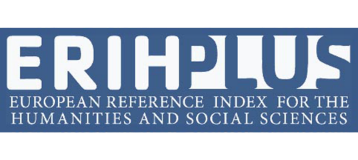Estructura cognitiva de las emociones sociales intervinientes en la comisión de delitos sexuales
DOI:
https://doi.org/10.37511/tesis.v16n1a11Resumen
Antecedentes: en el campo de la etiología del delito sexual se requiere profundizar en la función emocional de la cognición en consecuencia, se debe ampliar la comprensión de la conjunción entre la dimensión cognitiva y la dimensión emocional. Objetivo: se busca comprender la constitución de la estructura cognitiva de las emociones sociales intervinientes en la comisión de delitos sexuales. Específicamente, se identificaron la constitución de los sistemas de pensamiento, los significados y la intencionalidad de las emociones sociales intervinientes en la comisión de delitos sexuales. Metodología: El enfoque metodológico fue el fenomenológico y el método fue el expresivo del vocativo. Participaron veinticinco personas condenadas y no condenadas por delitos sexuales y se llevaron a cabo múltiples entrevistas a profundidad y relatos anecdóticos sexuales. Resultados: se encontraron ocho modos constitutivos denominados ‘dramas’: parental, salvador, coleccionista, narcisista, fantasma, depredador, caníbal e indefinido; al igual cinco procesos constitutivos de conformación: diacronía, polaridades conflictivas, emociones (como mecanismos de orientación e interacción), rasgos situacionales y sincrónicos, y la sexualización de la emoción. Se desarrolló la discusión alrededor de: primero, las emociones en lugares y eventos en dramas y geometrías del delito sexual; y segundo, la emocionalización del sexo y sexualización de la emoción (la configuración de los dramas y las geometrías del delito sexual). Conclusiones: la estructura cognitiva del delito sexual se constituye en la sexualización temprana de emociones como respuesta a conflictos de maltrato, abandono, apego y sobreprotección. Estos conflictos llevan al infante a buscar protección, refugiándose en la gratificación que genera la sexualidad.
Descargas
Referencias
Beech, A. R., Bartels, R. M., y Dixon, L. (2013). Assessment and Treatment of Distorted Schemas in Sexual Offenders. Trauma, Violence y Abuse, 14(1), 54-66. 10.1177/1524838012463970
Ben-Ze’ev, A. (2014). The Personal Comparative Concern in Schadenfreude. In W. Van Dijk y J. Ouwerkerk (Eds.), Schadenfreude: Understanding Pleasure at the Misfortune of Others (pp. 77-90). Cambridge: Cambridge University Press. https://doi.org/10.1017/CBO9781139084246.007
Ben‐Ze'ev, A. (2010). “The Thing Called Emotion”. In: Goldie, P (Ed.), The Oxford Handbook of Philosophy of Emotion (pp. 41-62). Oxford: Oxford University Press.
Blagden, N., Lievesley, R., y Ware, J. (2017). “Emotions and Sexual Offending”. In: T. Gannon & T. Ward (Eds.), Sexual Offending: Cognition, Emotion and Motivation (pp. 71-88). London, UK: John Wiley & Sons.
Blake, E., & Gannon, T. (2008). Social Perception Deficits, Cognitive Distortions, and Empathy Deficits in Sex Offenders: A Brief Review. Trauma, Violence, y Abuse, 9(1), 34-55. https://doi.org/10.1177/1524838007311104
Candiotto, L. (2019). From Philosophy of Emotion to Epistemology: Some Questions About the Epistemic Relevance of Emotions. In L. Candiotto (Ed.), The Value of Emotions for Knowledge (pp. 3-24). New York: Palgrave Macmillan, Cham.
Castellino, N., Bosco, F. M., Marshall, W. L., Marshall, L. E., & Veglia, F. (2011). Mindreading Abilities in Sexual Offenders: An Analysis of Theory of Mind Processes. Consciousness and Cognition, 20(4), 1612-1624. https://doi.org/10.1016/j.concog.2011.08.01
Clark, A., & Chalmers, D. (1998). The Extended Mind. Analysis, 58(1), 7-19. Recuperado de: http://www.alice.id.tue.nl/references/clark-chalmers-1998.pdf.
Clark, J. C., & Groves, S. (2012). Teaching Primary Science: Emotions, Identity and the Use of Practical Activities. The Australian Educational Researcher, 39(4), 463-475. Recuperado de: https://eric.ed.gov/?id=EJ984467
Cowie, R. (2010). Describing the Forms of Emotional Colouring that Pervade Everyday Life. In P. Goldie (Ed.), The Oxford Handbook of the Philosophy of Emotion (pp. 63-96). Oxford: Oxford University Press.
Dando, C. J., & Oxburgh, G. E. (2016). Empathy in the Field: Towards a Taxonomy of Empathic Communication in Information Gathering Interviews with Suspected Sex Offenders. The European Journal of Psychology Applied to Legal Context, 8(1), 27-33. https://doi.org/10.1016/j.ejpal.2015.10.001
Elsegood, K. J., & Duff, S. C. (2010). Theory of Mind in Men who Have Sexually Offended Against Children: A UK Comparison Study between Child Sex Offenders and Nonoffender Controls. Sexual Abuse, 22(1), 112-131. https://doi.org/10.1177/1079063209359926
Finkelhor, D. (1984). The Prevention of Child Sexual Abuse: An Overview of Needs and Problems. Siecus Report, 13(1), 1-5. https://siecus.org/wp-content/uploads/2015/07/13-1.pdf
Goldie, P. (2009). The Oxford Handbook of Philosophy of Emotion. Oxford: Oxford University Press.
Goldie, P., & Deigh, J. (2009). Concepts of Emotions in Modern Philosophy and Psychology. In The Oxford Handbook of Philosophy of Emotion. Oxford: Oxford University Press.
Grossman, L., Martis, B., & Fichtner, C. (1999). Are Sex Offenders Treatable? A Research Overview. Psychiatric services, 50(3), 349-361. Recuperado de: https://www.abusewatch.net/Are%20Sex%20Offenders%20Treatable%20-%20Grossman,%20Martis,%20Fichtner.pdf
Hall, G. C. N., & Hirschman, R. (1992). Sexual Aggression against Children: A Conceptual Perspective of Etiology. Criminal Justice and Behavior, 19(1), 8-23. https://doi.org/10.1177/0093854892019001003
Heffernan, R., & Ward, T. (2015). The Conceptualization of Dynamic Risk Factors in Child Sex Offenders: An Agency Model. Aggression and Violent Behavior, 24, 250-260. https://doi.org/10.1016/j.avb.2015.07.001
Hempel, I. S., Buck, N. M. L., Van Vugt, E. S., & Van Marle, H. J. C. (2015). Interpreting Child Sexual Abuse: Empathy and Offense-Supportive Cognitions among Child Sex Offenders. Journal of child sexual abuse, 24(4), 354-368. https://doi.org/10.1080/10538712.2015.1014614
Hempel, I. S., Buck, N. M. L., Van Vugt, E. S., & Van Marle, H. J. C. (2015). Interpreting Child Sexual Abuse: Empathy and Offense-Supportive Cognitions among Child Sex Offenders. Journal of Child Sexual Abuse, 24(4), 354-368. https://doi.org/10.1080/10538712.2015.1014614
Hermann, C. A., Babchishin, K. M., Nunes, K. L., Leth-Steensen, C., & Cortoni, F. (2012). Factor Structure of the Bumby Rape Scale: A Two-Factor Model. Criminal Justice and Behavior, 39(7), 869-886. https://doi.org/10.1177/0093854812436802
Husserl, E. (1984). La crisis de las ciencias europeas y la fenomenología transcendental. Buenos Aires: Folios.
Instituto Nacional de Medicina Legal y Ciencias Forenses de Colombia (2018). Exámenes medico legales por presunto delito sexual. Colombia, 2018. https://www.medicinalegal.gov.co/cifras-estadisticas/boletines-estadisticos-mensuales?
Kaplan, H., & Sadock, B. (1990). Compendio de psiquiatría. Buenos Aires: Editorial La Nave.
Linschoten, H. (1968). On the Way Toward a Phenomenological Psychology. In: Amedeo, G. (Ed.), The Psychology of
William James (pp. 65-94). Trans. A. Giorgi. Pittsburgh: Duquesne University Press.
Marshall, W. L., & Barbaree, H. E. (1990). An Integrated Theory of the Etiology of Sexual Offending. Handbook of Sexual Assault: Issues, Theories, and Treatment of the Offender (pp. 257-275). Netherlands: Springer.
Marshall, W., Marshall, L., Serran, G., & O'Brien, M. D. (2013). What Works in Reducing Sexual Offending. In L.A. Craig., L. Dixon., & T.A. Gannon (Eds.), What Works in Offender Rehabilitation: An Evidence-Based Approach to Assessment and Treatment (pp. 173-191). New York: John Wiley & Sons Eds. https://doi.org/10.1002/9781118320655.ch10
Maruna, S., & Mann, R. E. (2006). A Fundamental Attribution Error? Rethinking Cognitive Distortions. Legal and Criminological Psychology, 11(2), 155-177. https://doi.org/10.1348/135532506X114608
McPhail, I. V., Hermann, C. A., & Fernández, Y. M. (2014). Correlates of Emotional Congruence with Children in Sexual Offenders against Children: A Test of Theoretical Models in an Incarcerated Sample. Child abuse y neglect, 38(2), 336-346. https://doi.org/10.1016/j.chiabu.2013.10.002
Mulligan, K. (2010). Emotions and Values. In: The Oxford Handbook of Philosophy of Emotion. Oxford: Oxford University Press.
Nunes, K. L., & Jung, S. (2013). Are Cognitive Distortions Associated with Denial and Minimization Among Sex Offenders? Sexual Abuse, 25(2), 166-188. https://doi.org/10.1177/1079063212453941
Ó Ciardha, C., & Ward, T. (2013). Theories of Cognitive Distortions in Sexual Offending: What the Current Research Tells Us. Trauma, Violence, y Abuse, 14(1), 5-21. https://doi.org/10.1177/1524838012467856
Ó Ciardha, C., & Gannon, T. A. (2011). The Cognitive Distortions of Child Molesters are in Need of Treatment. Journal of Sexual Aggression, 17(2), 130-141. https://doi.org/10.1080/13552600.2011.580573
Ortony, A., Clore, G. L., & Collins, A. (1990). The Cognitive Structure of Emotions. Cambridge: Cambridge university press.
Pereda, N., Guilera, G., Forns, M., & Gómez-Benito, J. (2009). The Prevalence of Child Sexual Abuse in Community and Student Samples: A Meta-Analysis. Clinical psychology review, 29(4), 328-338. https://doi.org/10.1016/j.cpr.2009.02.007
Pham, A. T. (2016). Exploring the Underlying Constructs of Rape Cognition Scales and their Relationships with Sexual Aggression. (Postdoctoral dissertation). Carleton University, Ontario-Ottawa, Canada.
Pons-Salvador, G., Martínez, A., Pérez, M., & Borrás, J. J. (2006). La evaluación del abuso sexual infantil: comparación entre informes periciales en función del diagnóstico de abuso. Psychosocial Intervention, 15(3), 317-330. Recuperado de: http://scielo.isciii.es/scielo.php?script=sci_arttext&pid=S1132-05592006000300006.
Redondo F. C., & Otero, O. (2005). Abuso sexual infantil. Boletín de pediatría, 45(191), 3-16. Recuperado de http://sccalp.org/boletin/191/BolPediatr2005_45_003-016.pdf
Romano, B. (2018). The Epistemic Value of Emotions in Politics. Philosophia, 46(3), 589-608. https://doi.org/10.1007/s11406-017-9888-y
Sartre, J. P. (2015). Sketch for a Theory of the Emotions. London: Routledge.
Sigre-Leirós, V., Carvalho, J., & Nobre, P. (2015). Cognitive Schemas and Sexual Offending: Differences between Rapists, Pedophilic and Nonpedophilic Child Molesters, and Nonsexual Offenders. Child abuse y neglect, 40, 81-92. https://doi.org/10.1016/j.chiabu.2014.10.003
Smid, W. J., & Wever, E. C. (2019). Mixed Emotions: An Incentive Motivational Model of Sexual Deviance. Sexual Abuse, 31(7), 731-764. https://doi.org/10.1177/1079063218775972
Strauss-Hughes, A., Heffernan, R., & Ward, T. (2019). A Cultural-Ecological Perspective on Agency and Offending Behaviour. Psychiatry, Psychology and Law, 26(6), 938-958. https://doi.org/10.1080/13218719.2019.1644250
Tangney, J. P., Stuewig, J., & Hafez, L. (2011). Shame, Guilt, and Remorse: Implications for Offender Populations. Journal of Forensic Psychiatry y Psychology, 22(5), 706-723. https://doi.org/10.1080/14789949.2011.617541
Thomas, T. (2015). Sex Crime: Sex Offending and Society. London: Routledge.
Tiberi, L. A., Vicenzutto, A., & Pham, T. H. (2016). Cognitive-Emotions Deficits and Sex Offending: Preliminary Meta-Analysis Data. In Front. Aging Neurosci. Conference Abstract: 6th Belgian Brain Congress. https://doi.org/10.3389/conf.fnagi
Van Manen, M. (2016). Phenomenology of Practice: Meaning-Giving Methods in Phenomenological Research and Writing. London: Routledge.
Ward, T., & Casey, A. (2010). Extending the Mind into the World: A New Theory of Cognitive Distortions in Sex Offenders. Aggression and Violent Behavior, 15(1), 49-58. https://doi.org/10.1016/j.avb.2009.08.002
Ward, T., & Siegert, R. J. (2002). Toward a Comprehensive Theory of Child Sexual Abuse: A theory Knitting Perspective. Psychology, Crime and Law, 8(4), 319-351. https://doi.org/10.1080/10683160208401823
Ward, T., Polaschek, D., & Beech, A. (2006). Theories of Sexual Offending. Chichester: John Wiley y Sons Ltd.
Yannakakis, G. N., Cowie, R., & Busso, C. (2017). The Ordinal Nature of Emotions. In 2017 Seventh International Conference on Affective Computing and Intelligent Interaction (ACII) (pp. 248-255), IEEE.
Descargas
Publicado
Número
Sección
Licencia

Esta obra está bajo una Licencia Creative Commons Atribución-NoComercial-















